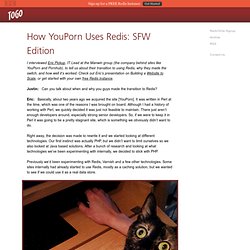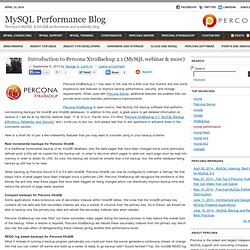

Home · Netflix/servo Wiki. How To Scale a Development Team. As hackers, we’re familiar with the need to scale web servers, databases, and other software systems. An equally important challenge in a growing business is scaling your development team. Most technology companies hit a wall with dev team scalability somewhere around ten developers. Having navigated this process fairly successfully over the last few years at Heroku, this post will present what I see as the stages of life in a development team, and the problems and potential solutions at each stage. Stage 1: Homebrewing In the beginning, your company is 2 - 4 guys/gals working in someone’s living room, a cafe, or a coworking space. At this stage, you’re trying to create and vet your minimum viable product, which is a fancy way of saying that you’re trying to figure out what you’re even doing here.
High Performance Networking in Google Chrome. By Ilya Grigorik on January 31, 2013 The following is a draft chapter for the upcoming "The Performance of Open Source Applications" (POSA), a sequel to The Architecture of Open Source Applications.

POSA is a collection of essays about performance optimization, designing for performance, managing performance as part of a development process, and more. The book will be published in Spring 2013 under a Creative Commons license with royalties going to Amnesty International. History and guiding principles of Google Chrome # ↑ Google Chrome was first released in the second half of 2008, as a beta version for the Windows platform. Ustream/daemon. How YouPorn Uses Redis: SFW Edition - I interviewed Eric Pickup, IT Lead at the Manwin group (the company behind sites like YouPorn and Pornhub), to tell us about their transition to using Redis, why they made the switch, and how well it’s worked.

Check out Eric’s presentation on Building a Website to Scale, or get started with your own free Redis instance. 10 Node.js Modules You May Not Know About. As Node.js continues to rise in popularity and the number of modules on npm rapidly increase it becomes harder and harder to keep up with the useful and unique modules.

So in order to make it a little easier I've compiled a list of some of the great Modules you might not know about. 1. Passport Passport is a simple way to add authentication to your application. It handles anything from basic auth to OAuth with Twitter or Facebook. EndGate - Home. Zynga/zperfmon. Rdlowrey/Amp. Philipl/pifs. SafeIO/v2 at master · jstar88/SafeIO. PuPHPet - Online GUI configurator for Puppet & Vagrant. Securing Login Forms From Brute-force Attacks Using Queues. - PHP Tutorials. Info.appdynamics.com/rs/appdynamics/images/PHP_Performance_Checklist.pdf. Introduction to Percona XtraBackup 2.1 (MySQL webinar & more) September 6, 2013 by George O.

Lorch IIILeave a Comment Percona XtraBackup 2.1 has been in GA now for a little over four months and has some impressive new features to improve backup performance, security, and storage requirements. When used with Percona Server, additional features are enabled that can provide even more dramatic performance improvements. Percona XtraBackup is open source, free MySQL hot backup software that performs non-blocking backups for InnoDB and XtraDB databases. Vagrant. The Hosebird Client streaming library. Apache Thrift. RazorFlow PHP Dashboard Framework - HTML5 Dashboards for web and mobile. Jedp/node-memwatch-demo. Manage your infrastructure: easily create, setup and maintain your servers on any cloud. Omissis/psr-http. Building a Decent API. PHP developers are increasingly moving over to API development, as are a lot of server-side developers.

It's a trend thats been happening for the last few years and it's getting to the point where everyone and their dog are putting articles showing off how to build "awesome" API's. Unfortunately most of these are either woefully inadequate or are promoting bad practices. I'm not going to link to any bad examples because that's just rude, but here are some golden rules that I stick to when building out API's. Never Expose DB Results Directly If you rename a field, then your users are fucked. Use the URI sparingly, and correctly Use the query string for paired params instead of /users/id/5/active/true. Resources are EVERYTHING You're always either asking for one resource, or multiple.
JSON, XML or shut up Don't spend forever trying to make your system output everything under the sun. Authentication OAuth 2 is the shit. Goodbye node-forever, hello PM2. It’s no secret that the devo.ps team has a crush on Javascript; node.js in the backend, AngularJS for our clients, there isn’t much of our stack that isn’t at least in part built with it.

Our approach of building static clients and RESTful JSON APIs means that we run a lot of node.js and I must admit that, despite all of it awesomeness, node.js still is a bit of a headache when it comes to running in production. Tooling and best practices (think monitoring, logging, error traces…) are still lacking when compared to some of the more established languages. So far, we had been relying on the pretty nifty node-forever. Great tool, but a few things were missing: Limited monitoring and logging abilities, Poor support for process management configuration, No support for clusterization, Aging codebase (which meant frequent failures when upgrading Node). This is what led us to write PM2 in the past couple months. So what’s in the box? First things first, you can install it with npm: Scalability, Availability & Stability Patterns. Open Source ETL designed to bridge the gap between business and IT. Erlang on Xen - at the heart of super-elastic clouds.
MySQL Performance Blog - Percona's MySQL & InnoDB performance and scalability blog. Decomposing Twitter: Adventures in Service-Oriented Architecture. Finagle. Twitter/snowflake. Messaging at Scale at Instagram. Decomposing Twitter: Adventures in Service-Oriented Architecture. Everything I Ever Learned about JVM Performance Tuning @twitter.